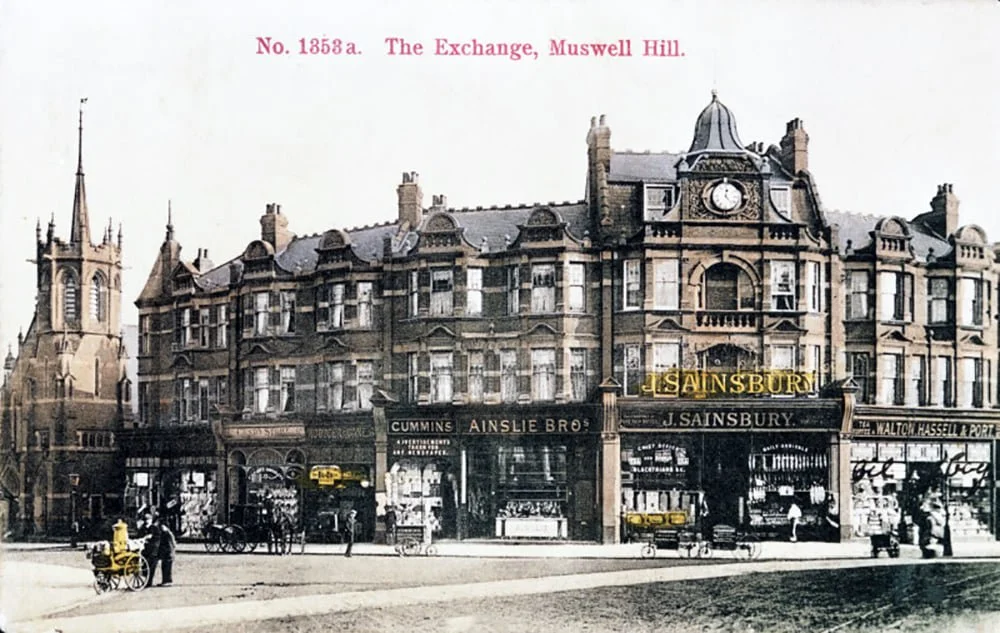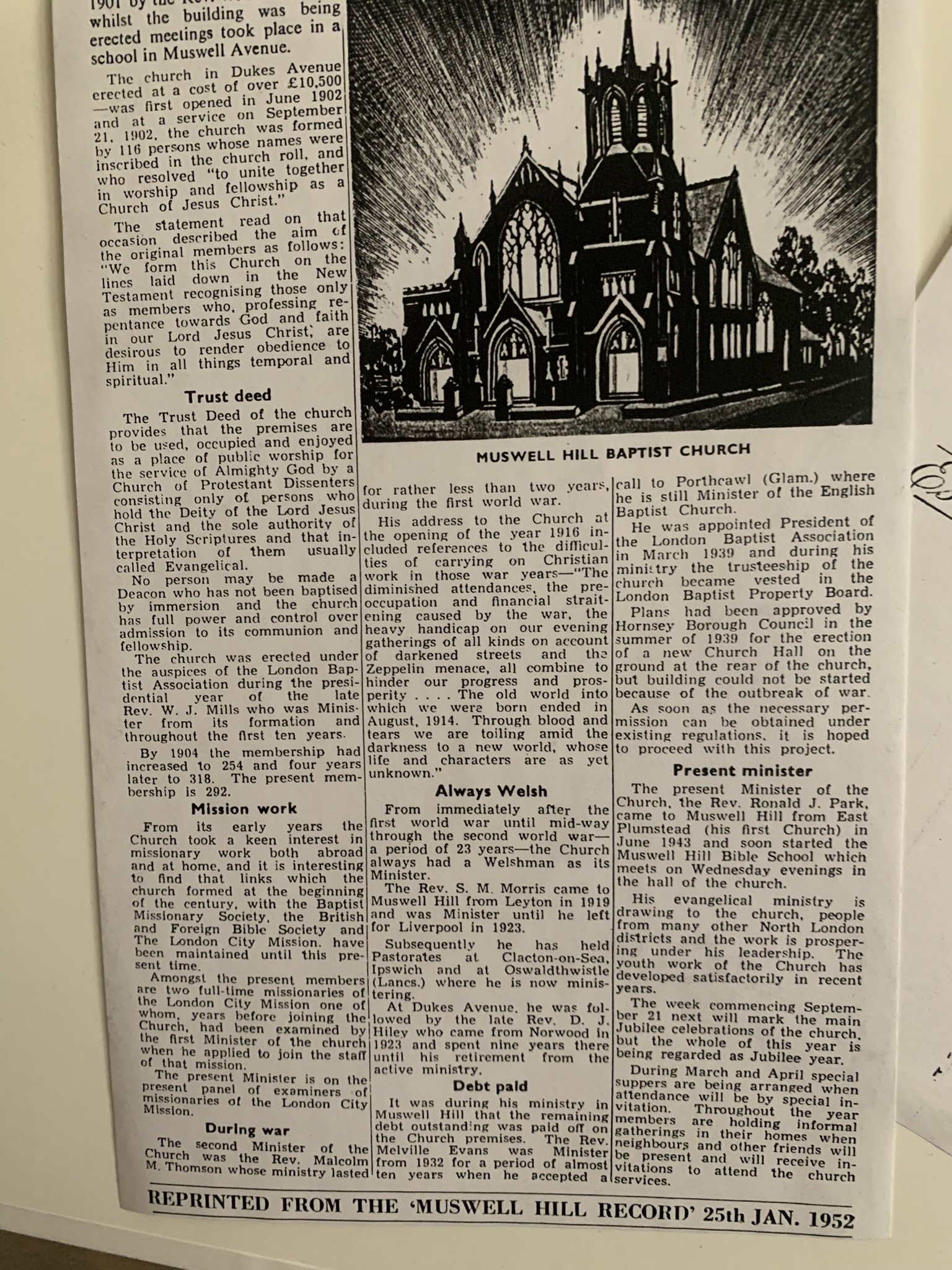1902
Muswell Hill was built in a very short time at the turn of the twentieth century. Provision was made for different kinds of churches and land was given by one of Muswell Hill’s key developers, James Edmondson, to the London Baptist Association so that a Baptist Church might be built.
Baptists
By the sixteenth century, many English people decided to separate from the Church of England and form their own independent congregations. Some of these Separatists, studying the Bible, adopted believer’s baptism and became known as Baptists. Meeting usually in houses or barns the religious and political conditions (for example that led to the Pilgrim Fathers emigrating to the New World) made prominent buildings illegal and impossible.
Toleration improved over two centuries and by the end of the Victorian era non-conformist (‘Free’) churches, including Baptists were both numerous and influential in many communities, particularly in suburban London.
Church-like Chapels
Muswell Hill Baptist Church is one of many examples of the new status of non-conformity in late Victorian and Edwardian England. It was commissioned by the London Baptist Association for the new suburb. George Baines was engaged as the architect. Baptists were already meeting in nearby Norfolk House School (a school which uses our premises today in a neat turn of history!).
The story of the subsequent development can be read in this article (below) from the 50th Anniversary celebrations in 1952.
Ronald Park’s ministry lasted 27 years. He was a famed preacher in North London, associated with the Prophetic Witness movement. During his ministry, and in association with several Missionary Societies then based in the area, many people went out from the church as missionaries across the world.
In more recent years the church has become known for the work of its Soup Kitchen, founded in 1994. It has maintained its evangelistic and evangelical emphases throughout its story, unashamedly taking the Bible and its plain meaning as the church’s rule of faith and conduct.



